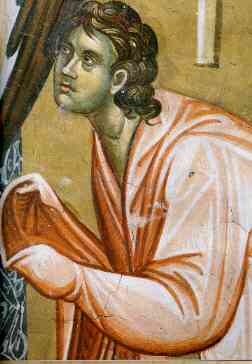 A Thinker's Progress #7: Gregory of Nyssa Pt 1
A Thinker's Progress #7: Gregory of Nyssa Pt 1
I have been reading some of the church father's writings for my Church History class (it begins in only a few weeks!), and i recently read a fascinating passage from the father Gregory of Nyssa.
Let me start by saying that i know nothing about Greg except what i have learned from this book. He was heavily influenced by Neoplatonism (as were most, if ont all of the fathers at this time), which led him to have a deeply spiritual view of the intellect. However, he thought that the "knowledge" of God transcends not only the senses but even someone's cognitive thoughts.
To illustrate this, he talks about Moses encountering God on Mt Sinai in the "darkness." He teaches that in the initial stages of someone's religious knowledge comes to them as illumination, but "the closer it (the believer's mind) approaches the vision of God the more it recognizes the invisible character of the divine nature."
Pretty heavy stuff i think. It seems that Greg is saying that the pinnacle of knowing God transcends not only the senses but even the mind. I am not sure whether Greg refers to the human soul or to the core of the nature of God when he says that God is most profoundly found in the interior, in a place beyond our senses and thoughts to to the "unseeable, and the incomprehensable." As he puts it: "For the goal of our search is beyond all knowledge; it is surrounded on all sides by a wall of incomprehensibility like a kind of darkness."
This paradoxical idea of seeing God in the dark is really intriguing, but i find its (over, in my mind)emphasis on transcendence to be a bit frightening. Of course, Greg would say that is the point: "So the very first commandment of God is that the divine is not to be likened to anything within the range of human knowledge." This idea lays significant groundwork for deterministic thinking, although i don't know if Greg endorsed such thought (most of the fathers didn't).
However, maybe the incarnation solves this problem; the unkowable God has revealed Himself in Jesus Christ: "No one has ever seen God, but God the One and Only, who is at the Father's side, has made him known (John 1:18).
Wow, this was way too long. Any Thoughts?


